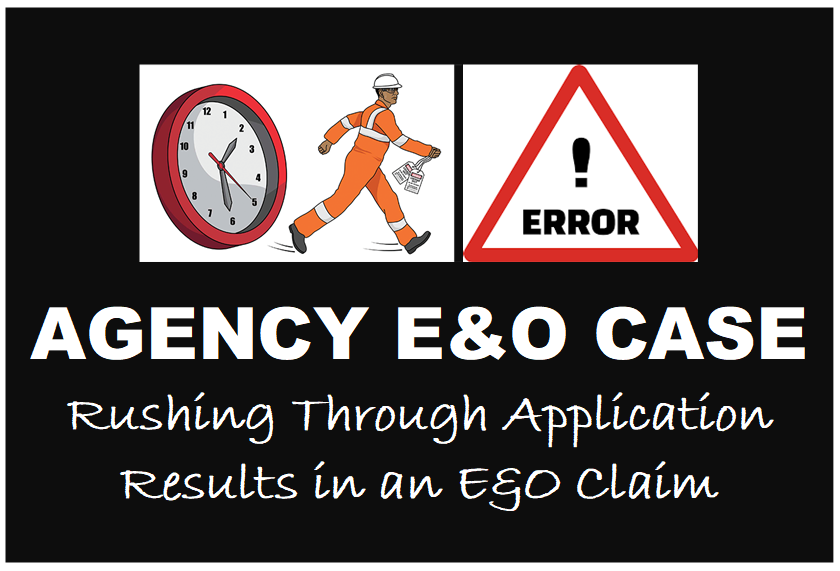
Most state courts hold that an insurance agent has a legal duty to obtain the requested coverage or to inform the insured of the inability to do so. The errors and omissions liability insurance carrier for a Minnesota agency paid a sizable claim after the agency neglected that duty.
The insured had inherited a farm and its equipment. He sought insurance on both from a local agency, who obtained it from a regional carrier. The insured had discussions with the agent over a period of several months, provided a list of equipment he wanted insured, and a written appraisal of the equipment. He told the agent he wanted everything on the list covered. Among the items was a grain dryer.
The agent agreed to bind coverage on the listed items. However, a letter sent to the carrier by the agency enclosed a schedule of equipment from a prior policy and told the carrier to insure the items on that schedule. The grain dryer was not on the schedule.

During the first renewal term, a fire damaged the grain dryer. The carrier denied coverage for the ensuing claim because the dryer was not scheduled on the policy. The court opinion did not give a value for the dryer, but a search indicates that the cost of a new unit is in the range of $80,000 to $150,000.
The agency admitted the error, submitted the claim to its E&O carrier, and the carrier paid for the damaged dryer. The insured then assigned any rights of recovery he had against his own insurance to the E&O carrier. The E&O carrier then sued the property carrier, seeking to require that carrier to pay because its agent had binding authority.
The property carrier moved to have the suit thrown out and countersued the agency under a hold harmless agreement in the agency contract. However, the trial court ruled against the carrier on every count. The carrier appealed.
In June 2022, the appellate court said that the property carrier had a case against the agency for indemnification. The agency had argued that prior court decisions disallowed the hold harmless agreement, but the appellate court found that the contract overruled the common law.
In fact, the appellate court ruled against everyone including the insured, and sent the entire case back for trial. There is no further public record; it is possible that the E&O carrier gave up on its subrogation effort.
This case illustrates two lessons:
- Agencies should not “quote per expiring.” While a previous policy can be a useful starting point, it should not be a substitute for new applications signed by the insured. Businesses buy and sell equipment regularly. A schedule that was accurate in 2022 might not be in 2023. Always get updated information from the insured.
- Also, when an agency receives a communication from an insured, do not overlook it. This insured made a specific request and for unexplained reasons the agency did not follow instructions. Consequently, they did not even try to argue that they handled the matter appropriately.
Ultimately, the lesson for all agencies is that taking shortcuts can cause future pain. Properly servicing an insured takes time and effort, but it can save a lot of grief later on.












